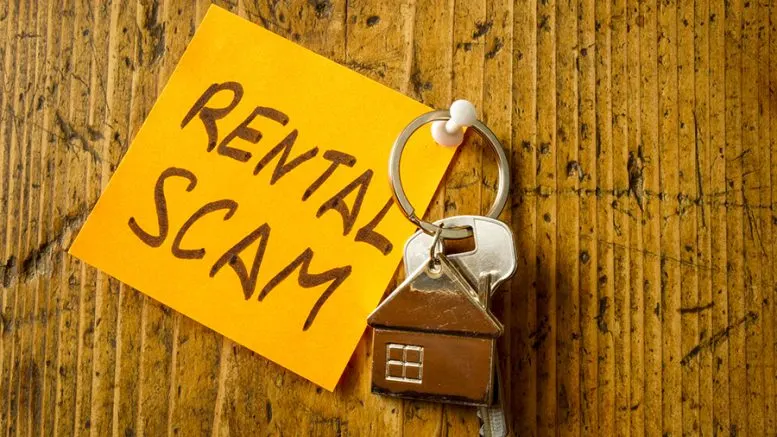Table of Content
▲- What is the New 'Rent Scam'?
- Why is This New 'Rent Scam' So Dangerous?
- How to Avoid the New 'Rent Scam'
- How to Check if a GST Registration Exists at Your Address
- What to Do If You Find a Fake GST Registration
- If You Become a Victim of the New 'Rent Scam'
- What to Include in a Safe Rent Agreement
- Final Thoughts
In recent times, a new 'rent scam' has emerged, sending shockwaves among homeowners and landlords across India. Unlike traditional tenancy issues like unpaid rent or delayed eviction, this new scam involves GST fraud and has severe legal and financial implications. Highlighted recently by Indore's Additional SP Dr. Prashant Choubey, the scam involves fake tenants misusing residential addresses to register bogus GST numbers, leaving unsuspecting landlords liable for massive tax defaults.
What is the New 'Rent Scam'?
In this new 'rent scam', fraudsters present themselves as legitimate tenants, complete with valid-looking documents and a formal rent agreement. They even pay the security deposit and first month’s rent to earn the landlord’s trust. But soon after, they vacate the property without any complaints or issues. This makes the landlord believe that everything is in order.
However, unknown to them, the tenant would have used the property’s address to register a fake GST account. Eventually, the landlord begins receiving GST notices for tax dues and legal violations — liabilities they had no part in.
Why is This New 'Rent Scam' So Dangerous?
This scam is much more serious than typical tenant issues. Here’s why:
- Legal Liability: Landlords may be held liable for fake GST registrations at their address.
- Difficulty in Tracing: Scammers often use forged documents and vanish, making it hard to catch them.
- Prolonged Legal Battle: Proving that the fraudulent registration wasn’t your doing can take years.
How to Avoid the New 'Rent Scam'
According to Dr. Prashant Choubey, vigilance is your best defense. Here are steps landlords can take to avoid falling victim:
- Verify Tenant Documents Thoroughly: Cross-check ID proofs and references.
- Police Verification: Always file a tenant verification form at the local police station.
- Notarize the Rent Agreement: Make the agreement on stamp paper and get it notarized.
- Mention Clauses Against Misuse: Clearly state legal action in case of misuse of address or documents.
View this post on Instagram
How to Check if a GST Registration Exists at Your Address
To ensure no one has fraudulently registered a GST number using your address:
- Visit the official GST portal: https://www.gst.gov.in
- Click on Search Taxpayer.
- Choose Search by PAN or GSTIN/UIN.
- Enter your PAN and captcha code.
- Check if any suspicious GST registrations exist at your address.
What to Do If You Find a Fake GST Registration
If you discover a fake GST registration linked to your home address:
- Lodge a complaint on the GST portal.
- Contact the state GST department through their official email.
- Call GST Customer Care at 1800-103-4786.
- Submit proof of address (rent agreement, Aadhaar, electricity bill) to cancel the fraudulent registration.
If You Become a Victim of the New 'Rent Scam'
If you’re already affected:
- File a police complaint or report to the cyber crime cell immediately.
- Notify the GST department and respond to any notices received.
- Consult a lawyer to understand the legal process and steps to prove your innocence.
What to Include in a Safe Rent Agreement
To safeguard your property, include these points in your rental agreement:
- Duration of lease and renewal terms.
- Monthly rent, due date, and payment mode.
- Details on security deposit and refund conditions.
- Responsibility for utility bills and maintenance.
- Inspection rights and termination clauses.
- Clear warning about illegal activities leading to termination.
Final Thoughts
The new 'rent scam' is a wake-up call for every landlord in India. The misuse of property addresses for GST fraud not only tarnishes your financial credibility but can drag you into prolonged legal complications. Being proactive and following proper documentation and verification processes can shield you from these new-age tenancy frauds.






_1771582392.webp)
_1771577585.webp)
Ans 1. It’s a scam where fraudsters pose as genuine tenants and use the rented property address to register fake GST numbers. Once done, they disappear, leaving the landlord liable for tax fraud they had no knowledge of.
Ans 2. The scam tenants provide valid-looking documents, sign a rent agreement, and pay the initial rent. After registering a GST number using the property address, they vacate quietly. Later, landlords start receiving GST notices for unpaid taxes.
Ans 3. Yes. If a fake GST registration is traced to your address, authorities may hold you accountable, and you might need to prove your innocence through a legal process.
Ans 4. Visit: https://www.gst.gov.in Click on “Search Taxpayer” Choose “Search by PAN” or “GSTIN/UIN” Enter your PAN or details Check if any suspicious GST registration exists at your address
Ans 5. File a complaint on the GST portal Contact your State GST department Call GST Customer Care: 1800-103-4786 Submit proof of your residence (like rent agreement, Aadhaar, electricity bill)
Ans 6. Verify all tenant documents thoroughly Always get police verification done for tenants Create a notarized rent agreement on stamp paper Add a clause that prohibits misuse of the address and mentions legal action
Ans 7. File a police complaint or approach the cybercrime cell Notify the GST department and respond to all legal notices Consult a lawyer to guide you through the legal process Collect all documentation to prove your lack of involvement
Ans 8. It may not be legally mandatory in all states, but it is highly recommended. It offers an extra layer of protection and proof if legal issues arise later.